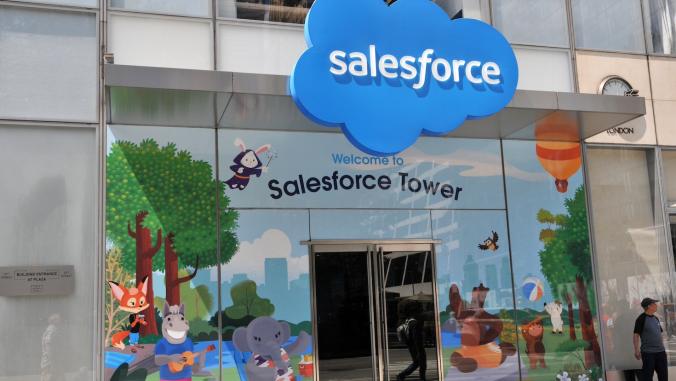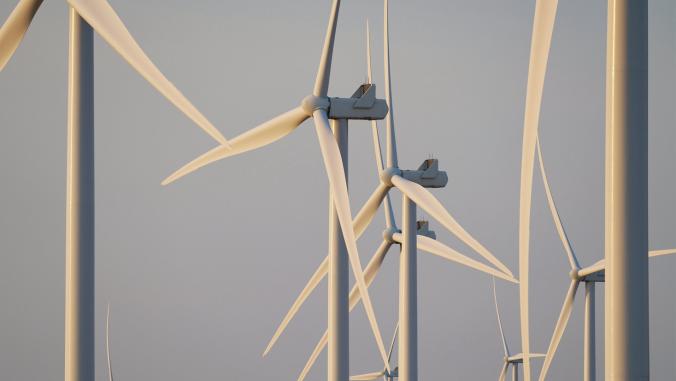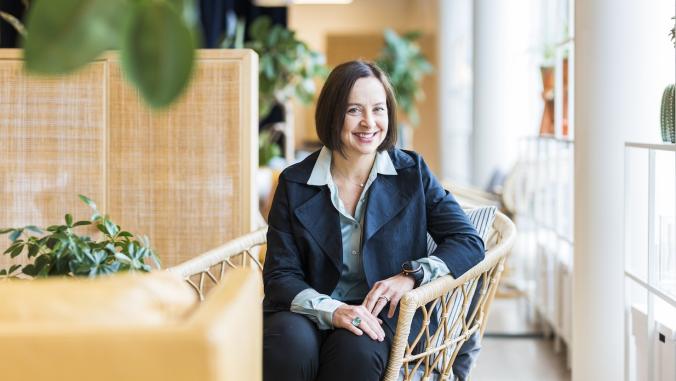This startup bets e-scooters can give urban power grids a makeover
Smaller electrified vehicles such as bikes, scooters and motorcycles aren't yet in high demand stateside — but Gogoro thinks they're poised to affect developing markets in a big way.

Electrified scooters, bicycles and motorcycles are still a tough sell in North America. But it’s another matter entirely in urban economies across Asia, India and China, where the technology could play a big role in reshaping the power grid.
Scooters already are widely used in these countries. Now, the trick is convincing citizens to opt for a greener option.
Over the next decade, an estimated 55 million e-scooters and motorcycles could find their way onto roads, according to a recent forecast by Navigant Research. That’s about 6 million annually.
China is by far the biggest market this year, with about 96 percent share from a unit shipment standpoint. By 2024, however, its portion will shrink to around 77 percent as other emerging economies invest.
“Although purchase prices remain relatively high and the availability of vehicles is limited in some regions, e-motorcycles and e-scooters offer an affordable, efficient mode of personal transport for motorists, particularly in booming cities of the developing world,” said Navigant Research analyst Ryan Citron, in a statement.
That’s where entrepreneurial startups such as Gogoro come in.
Hitting the market
The company, which raised $150 million in venture backing before discussing its vision publicly, is testing its technology in Taiwan’s Taipei City.
At about $4,140, the Smartscooter is pricier than gasoline-powered alternatives. However, government subsidies will defray the cost.
Gogoro’s scooters use swappable batteries, so people don’t have to sit around and wait through a charging cycle. Rather, they can stop and handle a quick switch. Spares will be available at depots around cities — a concept that the company dubbed the Gogoro Energy Network.
Still, battery swapping isn't necessarily a slam dunk in the quest to mainstream electric vehicles. Pioneers in electrified transportation, such as Elon Musk, recently have expressed concern about the model, and Israel's now-defunct Better Place also has rocked the market in the past.
Aside from its obvious short-term purpose, Gogoro’s founder, former Microsoft and HTC executive Horace Luke, believes the network will be useful for demand response applications and as a backup power sources for businesses.
“We are not a transportation company. We are not even an energy company," he said. "But transportation is the majority of what people consume today in terms of energy."
The idea, Luke said, is to help cities grow more quickly in a “cleaner way.”
Taipei is testing the concept as part of its “Living Lab Project,” which is also experimenting with telemedicine applications and remote learning services. The idea (eventually) is to install charging depots so they are more prevalent than gas stations.
“We want to take the No. 1 thing that is generating the most amount of pollution in China and the greater part of Asia and apply a sustainable, flexible energy source,” Luke said.
When I spoke with the company in the spring, it had fielded more than 200 serious inquiries since its debut at the Consumer Electronics Show in January — from cities in South Africa, the Bahamas, Bermuda and the United States. This year, however, Gogoro will focus on ensuring that Taipei’s rollout is a success.
The concept of creating community resources for electric vehicles is also espoused by Volta Industries, a San Francisco startup that is building a network of charging stations in five major U.S. cities. The focus is on electric vehicles of the four-wheeled variety.
Volta closed $7.5 million in financing to support its models in mid-June. It is seeking to cover installation and operations cost by teaming with real-estate management companies that can use them for visibility.
“We’re driving the price of both the service and the infrastructure to zero as we tap major brands to join our community engagement model,” said Scott Mercer, co-founder and CEO of Volta, in a statement. “We’ve seen early success with companies like Macy’s, Whole Foods Market and Sungevity, and we expect that list to expand as we grow.”
Want to learn more about the future of the electrical grid around the world? Check out VERGE 2015 Oct. 26-29 in San Jose, California.





